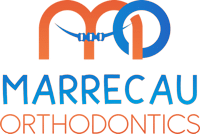Orthodontics (also referred to as dentofacial orthopedics) is a specialized form of dentistry that focuses on the diagnosis, prevention, and treatment of dental and facial abnormalities.
An orthodontist is a dental specialist who has completed an additional two to three years of specialty training and experience to be able to straighten teeth, correct misaligned jaw structure, and improve the function of your smile.
For children, the American Association of Orthodontists recommends that children first visit an orthodontist around the age of seven. However, it is important to remember that orthodontics is not just for teens and children. Today, one out of every five patients is an adult over the age of 21, it is never too late to receive treatment. Whether you’re considering treatment for yourself or your a child, right now is the best time to visit the orthodontist.
The MOST important action you can take is to brush your teeth after every meal and floss at least once a day. Be sure to use a toothpaste that contains fluoride and check with your doctor if you need a fluoride rinse. Fluoride will help prevent cavities.
When you remove your retainer to eat, make sure you brush your teeth, floss, and remember to always store your retainer in its container to prevent it from getting lost or broken. It is also important to keep your retainer clean by brushing it carefully using a toothbrush and toothpaste. You can also soak your retainer in a denture cleaner, ask your orthodontist for instructions. When cleaning your retainer, never place it in boiling water or the dishwasher.
While undergoing treatment, stay away from foods with a lot of sugar because it increases the number of bacteria that grow in your mouth and will increase the amount of plaque and possibly cavities.
Also be sure to avoid foods that can damage your braces such as sticky and chewy foods (caramel, chewing gum, gummy bears), hard foods (hard candy, nuts, ice cubes), or any foods that could get stuck in your braces (corn on the cob, soft bagels, ribs, taffy, etc.).
Be sure to schedule your routine checkups and cleanings with your family dentist every six months.
Braces are appliances placed by your orthodontist to re-arrange your teeth to improve the look, feel, and functionality of your smile. There are several different types of braces to choose from, including:
The time you spend in braces will vary from patient to patient. Everyone responds differently to treatment but treatment durations typically fall within the six to thirty months range with the average treatment lasting twenty-two months.
Braces do not hurt per se but you may experience some discomfort for the first few days after getting them placed while your teeth, gums, cheeks, and mouth adjust to your new braces.
It is absolutely necessary to brush your teeth a minimum of three times a day to maintain your teeth, gums, and mouth healthy and sparkly clean. Properly brushing your teeth will remove any food that gets caught between the braces. It is also important to floss daily in between your teeth and braces to clean the areas your brush doesn’t reach. Ask your doctor to instruct you on the proper brushing and flossing technique.
Definitely yes! Orthodontic patients must continue visiting their family dentist regularly for cleanings and check-ups. With braces, it is more likely to get food caught in hard to reach places. Caught food leads to bacteria build-up which then leads to cavities, gingivitis, and gum disease. Your dentist and orthodontist will work together to ensure your teeth maintain optimum health while wearing braces.
Will my braces interfere with my school activities like sports, playing an instrument, or singing?
Playing an instrument or a contact sport may require some adjustment when you first get your braces, but wearing braces will not stop you from participating in any of your school activities. If you play a contact sport, it is recommended that you wear a mouthguard to protect your braces or appliance.
We have good news, braces do not prevent you from participating in any of your school activities. You may need to make some adjustments when you first get your braces to play your favorite instrument or participate in a contact sport, but it will become second nature in no time. If you play a contact sport, ask your orthodontist to recommend a mouthguard to fit your needs the best.
Just call us, we’re here for you! Our friendly staff will be happy to help you coordinate the most convenient date and time for your next appointment. If you are a new patient, please let us know so that we can provide you with all the information that you need to make your experience a success.

